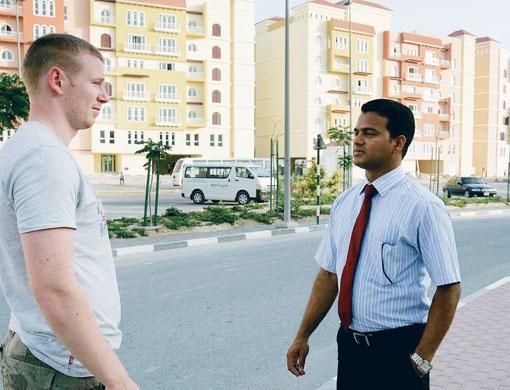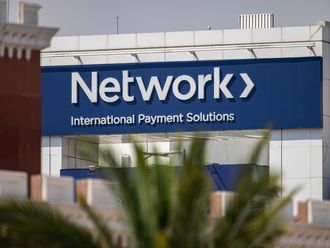Many have been turned away by the banks and have resorted to seeking other sources of financing.
The credit crisis is bleeding Wayne's pockets dry. The Indian expatriate, who started his public relations firm in Dubai about two years ago, has just laid off eight of his 12-man staff.
For months, Wayne (name changed on request) has not made any profit. His clients are defaulting on Dh1 million debt and he's having difficulty closing new deals. To stay afloat, he sought help from banks, but to no avail.
Left without a choice, Wayne went to his friends and luckily, he managed to raise Dh70,000 from different donors this year. That does not include the money he took from his personal savings.
"Cash flow is really extremely tight. We are burning capital right now. We've had operational losses in the last couple of months. There's no profit to be made because of the downturn. I tried to explore raising capital. We had a strong balance sheet, so we went to the bank early this year to borrow money. But we were told we're not on their A-list of clients," Wayne said.
"What are we going to do now? How do SMEs (small-and-medium scale enterprises) like us operate in that kind of scenario? Just imagine our plight. There are many small businesses who are suffering the same."
"If you look around Dubai, SMEs are the worst hit because they don't have overdraft facilities, big cash flows and revenue turnover," he adds.
SMEs, which reportedly constitute 85 per cent of businesses in the UAE, are facing an acute shortage of financing. According to a recent study by Dun & Bradstreet, more than 50 per cent of SMEs in the UAE were having problems accessing credit last year.
The study found that banks in the UAE generally reject between 50 per cent and 70 per cent of the applications for credit to SMEs, largely due to high perceived risk of lending, as well as applicants' failure to meet tight loan requirements and conditions.
SMEs refer to businesses with less than 100 employees and an approximate annual turnover of less than Dh100 million. There are about 85,000 SMEs registered with the Dubai Chamber of Commerce and Industry alone, as of 2008.
According to Barmak Besharaty, managing director at Almas Capital, there is obviously not enough room for manoeuvring for small businesses right now. "It's a very tough situation to be in.
The construction, tourism, transportation or any other sector you talk about is feeling the effects of the crisis. It's a general situation. You can't blame the banks if they're not aggressively going into the SME market. But I firmly believe that the UAE economy will definitely come back to its positive growth. Right now, we just kind of have to ride out the storm," he adds.
Since there's still so much uncertainty in the air, Sayed Firoz, who opened Grace Homes just before the recession hit, decided not to seek a loan from the bank. He admits that cash in his real estate brokerage firm is running dry, but he has implemented some contingency measures for him to sustain his business.
Instead of relying on banks to bail him out of trouble, Firoz managed to secure financial aid from his friends. Terminating the services of some of his six-man workforce isn't an option either, so Firoz granted three of his six employees an unpaid vacation for six months.
His company has also slashed spending on advertisements to 40 per cent and is planning to move his office to a cheaper location. "We used to work eight to 10 hours. Now, we work 13 to 14 hours. We work very hard to make money for our business." Firoz says his company started feeling the economic pinch late last year, when queries from tenants stopped.
"We used to have a lot of calls. Before the crisis, our clients would get loans from banks so they could rent a house. But banks don't help them nowadays. However, we're seeing a bit of an improvement in the market recently. Hopefully, the market will get better," Firoz adds.













